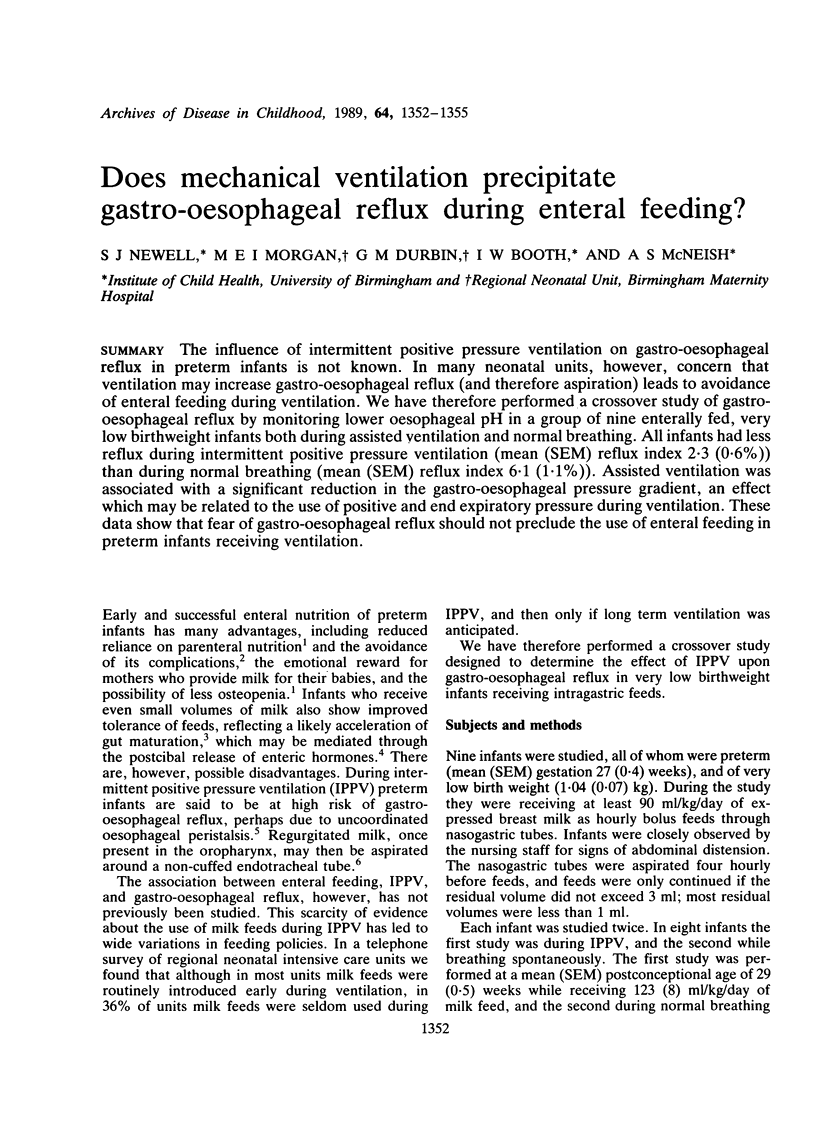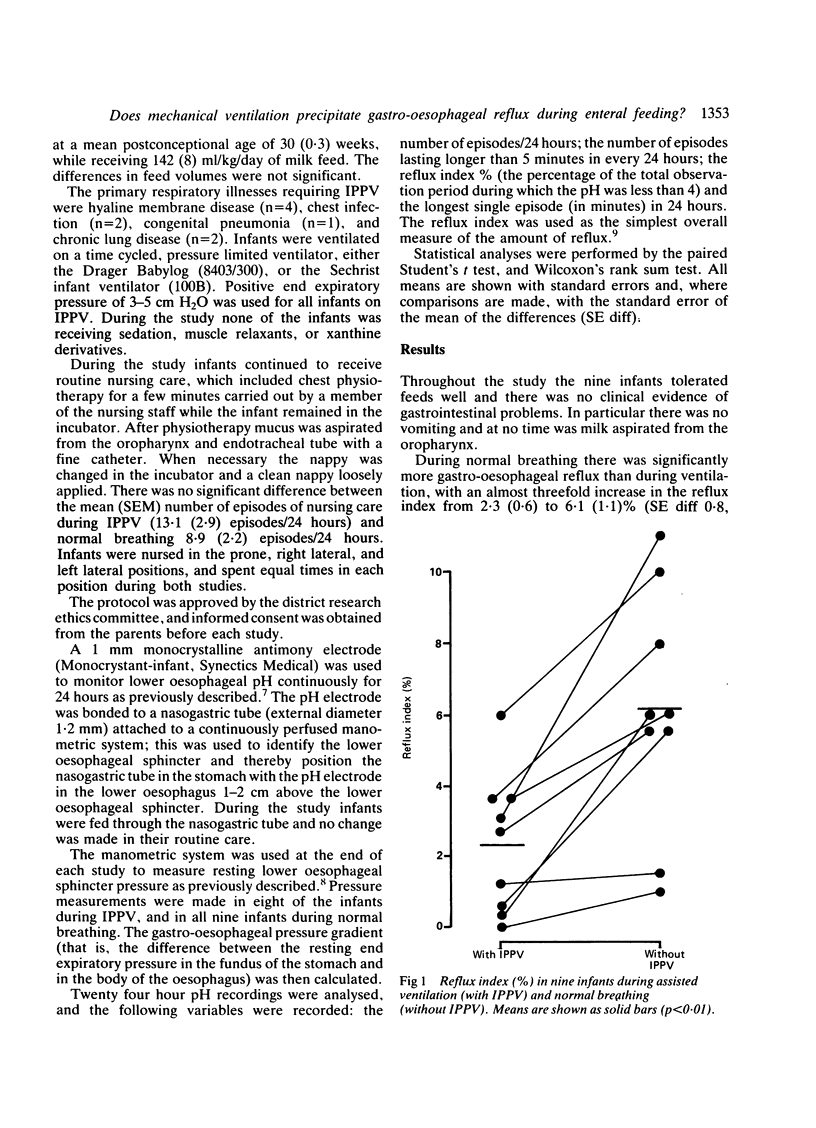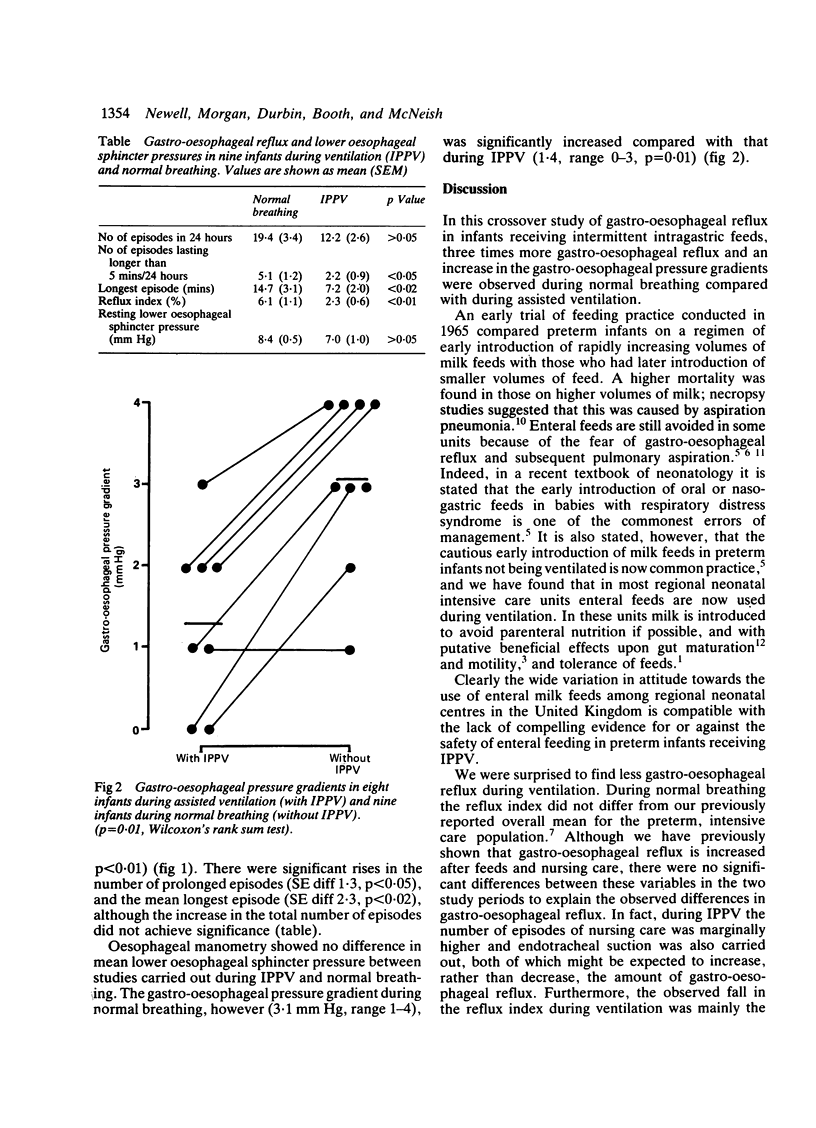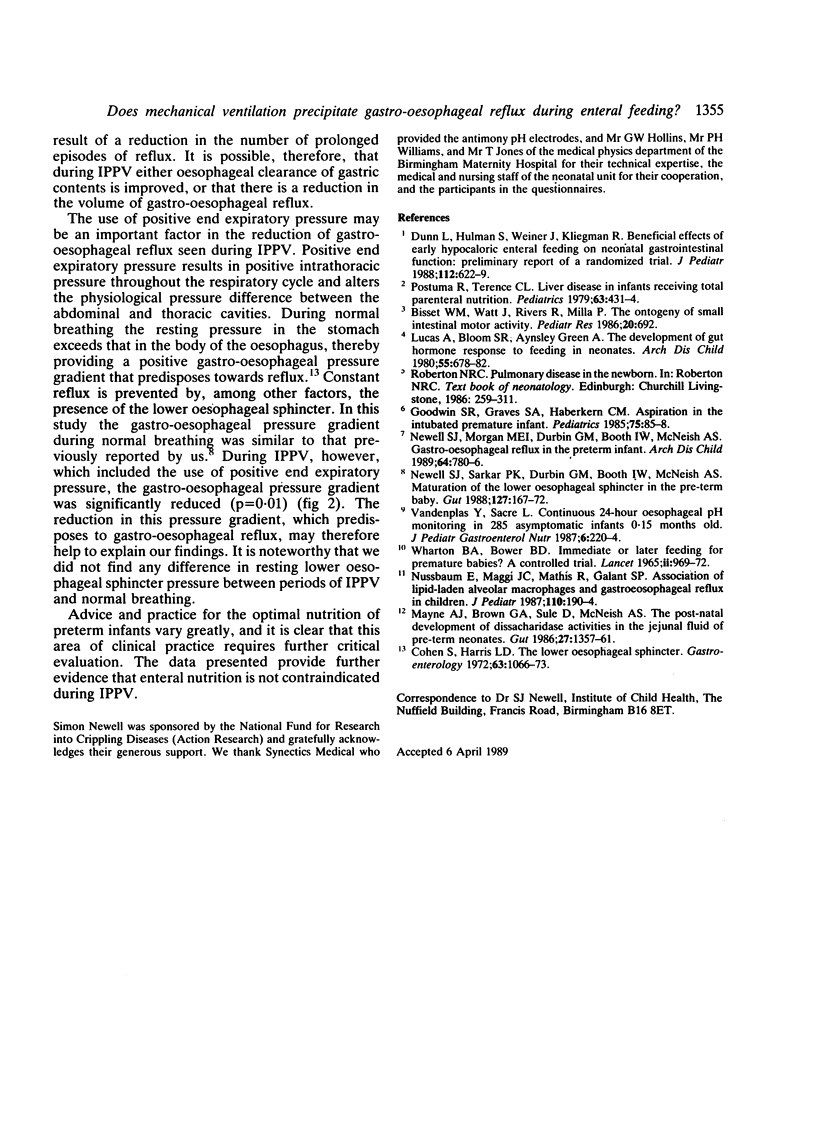Abstract
The influence of intermittent positive pressure ventilation on gastro-oesophageal reflux in preterm infants is not known. In many neonatal units, however, concern that ventilation may increase gastro-oesophageal reflux (and therefore aspiration) leads to avoidance of enteral feeding during ventilation. We have therefore performed a crossover study of gastrooesophageal reflux by monitoring lower oesophageal pH in a group of nine enterally fed, very low birthweight infants both during assisted ventilation and normal breathing. All infants had less reflux during intermittent positive pressure ventilation (mean (SEM) reflux index 2.3 (0.6%)) than during normal breathing (mean (SEM) reflux index 6.1 (1.1%)). Assisted ventilation was associated with a significant reduction in the gastro-oesophageal pressure gradient, an effect which may be related to the use of positive and end expiratory pressure during ventilation. These data show that fear of gastro-oesophageal reflux should not preclude the use of enteral feeding in preterm infants receiving ventilation.
Full text
PDF



Selected References
These references are in PubMed. This may not be the complete list of references from this article.
- Cohen S., Harris L. D. The lower esophageal sphincter. Gastroenterology. 1972 Dec;63(6):1066–1073. [PubMed] [Google Scholar]
- Dunn L., Hulman S., Weiner J., Kliegman R. Beneficial effects of early hypocaloric enteral feeding on neonatal gastrointestinal function: preliminary report of a randomized trial. J Pediatr. 1988 Apr;112(4):622–629. doi: 10.1016/s0022-3476(88)80185-9. [DOI] [PubMed] [Google Scholar]
- Goodwin S. R., Graves S. A., Haberkern C. M. Aspiration in intubated premature infants. Pediatrics. 1985 Jan;75(1):85–88. [PubMed] [Google Scholar]
- Lucas A., Bloom S. R., Aynsley-Green A. Development of gut hormone responses to feeding in neonates. Arch Dis Child. 1980 Sep;55(9):678–682. doi: 10.1136/adc.55.9.678. [DOI] [PMC free article] [PubMed] [Google Scholar]
- Mayne A. J., Brown G. A., Sule D., McNeish A. S. Postnatal development of disaccharidase activities in jejunal fluid of preterm neonates. Gut. 1986 Nov;27(11):1357–1361. doi: 10.1136/gut.27.11.1357. [DOI] [PMC free article] [PubMed] [Google Scholar]
- Newell S. J., Booth I. W., Morgan M. E., Durbin G. M., McNeish A. S. Gastro-oesophageal reflux in preterm infants. Arch Dis Child. 1989 Jun;64(6):780–786. doi: 10.1136/adc.64.6.780. [DOI] [PMC free article] [PubMed] [Google Scholar]
- Newell S. J., Sarkar P. K., Durbin G. M., Booth I. W., McNeish A. S. Maturation of the lower oesophageal sphincter in the preterm baby. Gut. 1988 Feb;29(2):167–172. doi: 10.1136/gut.29.2.167. [DOI] [PMC free article] [PubMed] [Google Scholar]
- Nussbaum E., Maggi J. C., Mathis R., Galant S. P. Association of lipid-laden alveolar macrophages and gastroesophageal reflux in children. J Pediatr. 1987 Feb;110(2):190–194. doi: 10.1016/s0022-3476(87)80152-x. [DOI] [PubMed] [Google Scholar]
- Vandenplas Y., Sacré-Smits L. Continuous 24-hour esophageal pH monitoring in 285 asymptomatic infants 0-15 months old. J Pediatr Gastroenterol Nutr. 1987 Mar-Apr;6(2):220–224. doi: 10.1097/00005176-198703000-00010. [DOI] [PubMed] [Google Scholar]


